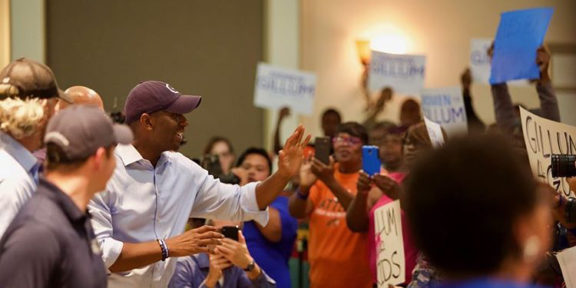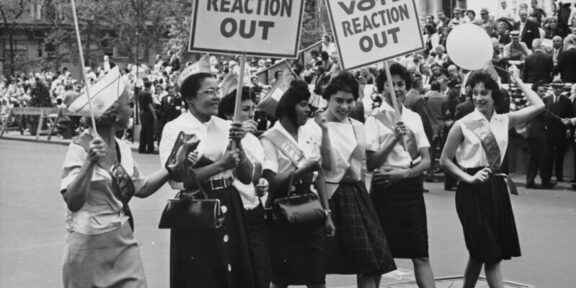Obama uses conference call to discuss his administration’s plan to help college students catch up
President Barack Obama held a conference call with college journalists Monday to discuss issues currently facing American college students and ways they were being addressed by his administration.
During the call, Obama said that in a single generation, U.S. college students have fallen from first to 12th in college graduation rates in comparison to other countries. His administration is now putting in place policies to help U.S. students catch up and regain the number one spot by 2020.
Colin Daileda, news editor for Radford University’s student newspaper “The Tartan,” asked the president if he believed the current college generation was “the lost generation” because many students leave school with debt and are unable to pay it off because they don’t find jobs.
Obama’s response: “Your generation is going to be fine.”
“If we’re serious about building a stronger economy and making sure we succeed in the 21st century, then the single most important step we can take is to make sure that every young person gets the best education possible,” Obama said. “Because countries that out-educate us today are going to out-compete us tomorrow.”
His policies regarding college students, which are part of the American Recovery and Reinvestment Act, have the goal of putting education back in the forefront of the classroom. The two other guiding principles of the Act include focusing on childhood education and reforming and investing in kindergarten through 12th grade education.
Relaxing the Financial Strain
“We’re making college more affordable,” said the president, who explained that one of the many changes to be made to the financial aid process will be how federal loans are disbursed. Instead of sending money to banks which will add unwarranted subsidies, loans will be going directly to students, an initiative that will make higher education more affordable for nearly 8 million families.
Pell Grant values will be raised to keep up with inflation, and financial aid forms will be simpler, he added.
As Obama explained, starting in 2014, students who have taken loans will be able to choose plans “so that you never have to pay more than 10 percent of your salary each month” to service them. College graduates who go into public service positions, such as military service, public safety and public education will have leftover student debt forgiven after 10 years. The public service policy was established in the College Cost Reduction and Access Act of 2007 by former President George W. Bush.
For students at universities across the country, such as the University of California at Los Angeles and Howard University, which both experienced boosts in tuition, Obama said these plans should alleviate some costs, but that if higher education inflation continues at its current pace, “we’re going to be right back where we started, putting more money in, but it’s all being absorbed by higher costs.”
Adding Health Care to Help Cut Cost for Recent Graduates
Obama’s Affordable Care Act, signed into law in late March 2010, may help recent college graduates who do not have jobs or have jobs without health benefits. As of Sept. 23, young adults who are under the age of 26 can stay – or return to – their parents’ health insurance plans, if their jobs do not offer health benefits.
With the plan, Obama said parents’ group rates “should not go up substantially,” but did not further elaborate on how much they would go up.
The usage of the Affordable Care Act will be contingent upon each young adult’s situation with their workplace, said the president. “If you find a job on graduation and your new employer offers you a health care plan, you can’t say to yourself, ‘You know what, I’d rather stay on my parents’ plan and that will save me some money.’ You’ve got to take up the offer that your employer gives you for health care.”
Awareness and Graduation
According to Obama, two of the most important parts of his plan rest on the shoulders of college students and their colleagues.
Obama said current students must be aware of the political climate, midterm elections, and who their congressional candidates are, because it may make “a huge difference” in whether his administration’s agenda will be able to move forward over the next couple of years. The apathy that takes place in years when there is no presidential elections must be replaced with “sustained engagement and sustained involvement.”
Students also must be willing and working towards graduating.
“More than a third of America’s college students and more than half of our minority students don’t earn a degree, even after six years,” said the president. Statistics from The National Center for Higher Education Management Systems showed that in 2008 only 55.9 percent of first-time full-time students seeking bachelor’s degrees in America graduated within six years.
“That’s a waste of potential,” he added. “Particularly if folks are racking up big debt and then they don’t even get the degree at the end – they still have to pay back that debt, but they’re not in a stronger position to be able to service it.”
The new policies under the American Recovery and Reinvestment Act are geared towards making college more affordable, thereby encouraging students to complete their degrees.
“The key here,” Obama said, “is that we want to open the doors of our colleges and universities to more people so they can learn, they can graduate and they can succeed in life.”




